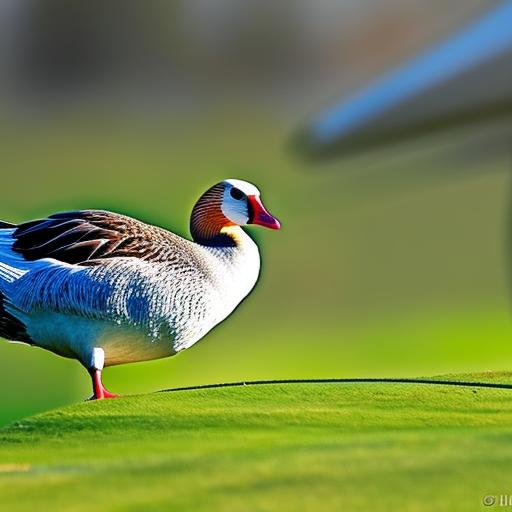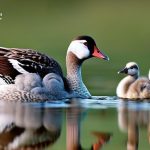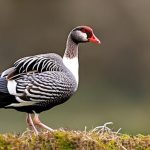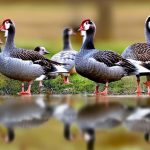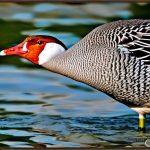Golf courses are often a haven for geese due to the abundance of open space, water features, and lush green grass. These factors make golf courses an attractive habitat for geese to feed, rest, and raise their young. The large expanses of well-maintained turf provide an ideal grazing area for geese, while the water features offer a convenient source of hydration and a safe place to escape from predators. Additionally, the lack of natural predators and the presence of humans who rarely pose a threat make golf courses an appealing location for geese to settle.
Key Takeaways
- Geese are attracted to golf courses because they provide open spaces, water sources, and food.
- Geese can cause damage to golf courses by leaving droppings, eating grass, and creating hazards for golfers.
- Physical deterrents such as fencing, netting, and barriers can be effective in keeping geese away from golf courses.
- Sound and visual deterrents such as decoys, lasers, and noise makers can also be used to scare geese away.
- Consistency is key in geese control, as geese will return if they find the environment welcoming.
- Creating an unwelcoming environment for geese can involve removing food sources, reducing water access, and using landscaping to discourage nesting.
- Natural ways to keep geese away from golf courses include planting certain types of grass, using natural predators, and using repellents made from natural ingredients.
- Professional pest control can be helpful in managing geese populations on golf courses.
- Educating golf course staff and visitors on geese control can help prevent unintentional feeding and other behaviors that attract geese.
- Long-term strategies for maintaining a geese-free golf course may involve a combination of physical, visual, and natural deterrents, as well as ongoing monitoring and management efforts.
The Negative Effects of Geese on Golf Courses
While geese may enjoy the amenities that golf courses provide, their presence can have detrimental effects on the course itself. One of the main issues is the damage caused to turf and greens. Geese graze on grass, pulling it up by the roots and leaving unsightly patches of bare ground. This can lead to uneven playing surfaces and costly repairs for golf course maintenance staff.
Another concern is the health hazards posed by goose droppings. Geese produce a significant amount of waste, which can accumulate on fairways, greens, and walkways. Not only is this unsightly, but it also poses health risks to golfers and staff who come into contact with the droppings. Goose droppings can contain harmful bacteria such as E. coli and Salmonella, which can cause gastrointestinal illnesses.
In addition to damaging the course and posing health risks, geese can also exhibit aggressive behavior towards golfers. During nesting season, geese become protective of their nests and may hiss, chase, or even attack individuals who come too close. This can create a hostile environment for golfers and deter them from enjoying their game.
Implementing Physical Deterrents to Keep Geese Away
To address the issue of geese on golf courses, various physical deterrents can be implemented to discourage their presence. Fencing is one effective method to keep geese out of certain areas. Installing a low fence around water features or sensitive areas can prevent geese from accessing these areas and causing damage.
Netting is another option that can be used to deter geese. By covering ponds or other water features with netting, geese are unable to land and swim in these areas. This can be particularly effective during nesting season when geese are more likely to be aggressive towards golfers.
Planting unappealing vegetation is another strategy to discourage geese from settling on golf courses. Geese prefer open spaces with short grass, so planting taller grasses or native plants that are less palatable to geese can make the area less attractive to them.
Using Sound and Visual Deterrents to Scare Geese
In addition to physical barriers, sound and visual deterrents can also be effective in scaring geese away from golf courses. Pyrotechnics, such as bird bangers or screamers, produce loud noises that startle geese and encourage them to leave the area. These devices can be set off at regular intervals to create a consistent deterrent effect.
Scarecrows are another visual deterrent that can be used to scare geese away. Placing scarecrows in strategic locations around the golf course can create the illusion of a predator presence and deter geese from settling in those areas.
Predator decoys, such as fake owls or coyotes, can also be effective in scaring geese away. These decoys mimic natural predators and can create a sense of danger for geese, causing them to seek safer locations away from the golf course.
The Importance of Consistency in Geese Control
While implementing deterrents is important, it is equally crucial to maintain consistency in geese control efforts. Regular maintenance of physical barriers, such as fences and netting, is necessary to ensure their effectiveness. Any damage or gaps in the barriers should be promptly repaired to prevent geese from finding a way back onto the golf course.
Consistent enforcement of rules is also essential in geese control. Golf course staff should be trained to monitor and enforce rules regarding feeding or approaching geese. Visitors should be informed of the consequences of feeding or disturbing geese to discourage such behavior.
Creating an Unwelcoming Environment for Geese

Creating an unwelcoming environment for geese can also help deter them from golf courses. Removing food sources, such as spilled birdseed or discarded food, can reduce the attraction for geese. Regularly cleaning up any food debris or waste can discourage geese from settling in the area.
Limiting water access is another strategy to make the golf course less appealing to geese. By reducing the number of accessible water features or implementing water management techniques, such as reducing water levels or adding deterrents like floating alligator decoys, geese are less likely to stay on the golf course.
Using repellents can also be effective in deterring geese. There are various commercial repellents available that can be applied to grass or other areas where geese are likely to graze. These repellents emit odors that are unpleasant to geese and discourage them from feeding in those areas.
Natural Ways to Keep Geese Away from Golf Courses
In addition to physical and visual deterrents, there are natural ways to keep geese away from golf courses. Planting certain types of grass that are less palatable to geese can make the area less attractive to them. For example, Kentucky bluegrass is a common grass type that geese find less appealing.
Using natural predators can also help control the goose population on golf courses. Installing nesting boxes for birds of prey, such as owls or hawks, can attract these natural predators to the area. The presence of these predators can deter geese from settling on the golf course.
The Role of Professional Pest Control in Geese Management
In some cases, it may be necessary to hire a professional pest control company to manage geese on golf courses. These companies have the expertise and resources to implement effective geese control strategies. They can conduct site assessments, develop customized management plans, and provide ongoing monitoring and maintenance.
One of the benefits of hiring a professional pest control company is their knowledge of local regulations and permits. Geese are protected under federal law, and there are specific guidelines that must be followed when implementing control measures. Professional pest control companies are familiar with these regulations and can ensure that all actions taken are in compliance with the law.
Educating Golf Course Staff and Visitors on Geese Control
Educating golf course staff and visitors on geese control is crucial for maintaining a geese-free environment. Staff should be trained on proper deterrent maintenance and enforcement of rules. They should also be educated on the potential health risks associated with goose droppings and how to handle them safely.
Visitors should be informed of the rules regarding geese and the consequences of feeding or disturbing them. Signage can be placed around the golf course to remind visitors of these rules and encourage responsible behavior.
Long-Term Strategies for Maintaining a Geese-Free Golf Course
Maintaining a geese-free golf course requires long-term strategies and ongoing efforts. Regular monitoring and maintenance of deterrents is necessary to ensure their effectiveness. Any repairs or adjustments should be made promptly to prevent geese from finding a way back onto the golf course.
Adapting to changing geese behavior is also important in long-term geese management. Geese are intelligent animals and can become habituated to certain deterrents over time. It may be necessary to rotate or change deterrents periodically to maintain their effectiveness.
Continual education and training are essential for long-term geese control. Keeping staff and visitors informed of the latest geese control strategies and regulations can help ensure a geese-free environment for golfers and wildlife alike.
Enjoying a Geese-Free Golf Course
In conclusion, while geese may be attracted to golf courses, their presence can have negative effects on the course and pose health risks to golfers. Implementing physical, sound, and visual deterrents can help keep geese away from golf courses. Consistency in geese control efforts, creating an unwelcoming environment, and using natural methods can also be effective in deterring geese. Hiring a professional pest control company and educating staff and visitors are important aspects of geese management. By implementing long-term strategies and maintaining a geese-free environment, golfers can enjoy their game without the nuisance and hazards posed by geese.
If you’re looking for effective ways to keep geese off your golf course, you might also be interested in learning about turning a shed into a chicken coop. This informative article from Poultry Wizard provides valuable insights on how to repurpose a shed into a safe and comfortable home for your chickens. By implementing the tips and techniques mentioned in this article, you can create a secure space for your feathered friends while keeping them away from the golf course. Check out the article here to discover more about this practical solution.
FAQs
What are the common problems caused by geese on golf courses?
Geese can cause damage to the turf, create unsightly droppings, and pose a safety hazard to golfers.
What are some effective ways to keep geese off golf courses?
Some effective ways to keep geese off golf courses include using decoys, installing fencing or netting, using repellents, and modifying the landscape to make it less attractive to geese.
What are some natural repellents that can be used to keep geese away?
Some natural repellents that can be used to keep geese away include grape concentrate, garlic oil, and predator urine.
What are some non-lethal methods of controlling geese populations on golf courses?
Some non-lethal methods of controlling geese populations on golf courses include egg addling, habitat modification, and hazing techniques.
Is it legal to kill geese on golf courses?
Killing geese on golf courses is generally not legal without a permit from the appropriate wildlife agency. It is important to check local regulations before taking any action to control geese populations.
Meet Walter, the feathered-friend fanatic of Florida! Nestled in the sunshine state, Walter struts through life with his feathered companions, clucking his way to happiness. With a coop that’s fancier than a five-star hotel, he’s the Don Juan of the chicken world. When he’s not teaching his hens to do the cha-cha, you’ll find him in a heated debate with his prized rooster, Sir Clucks-a-Lot. Walter’s poultry passion is no yolk; he’s the sunny-side-up guy you never knew you needed in your flock of friends!

